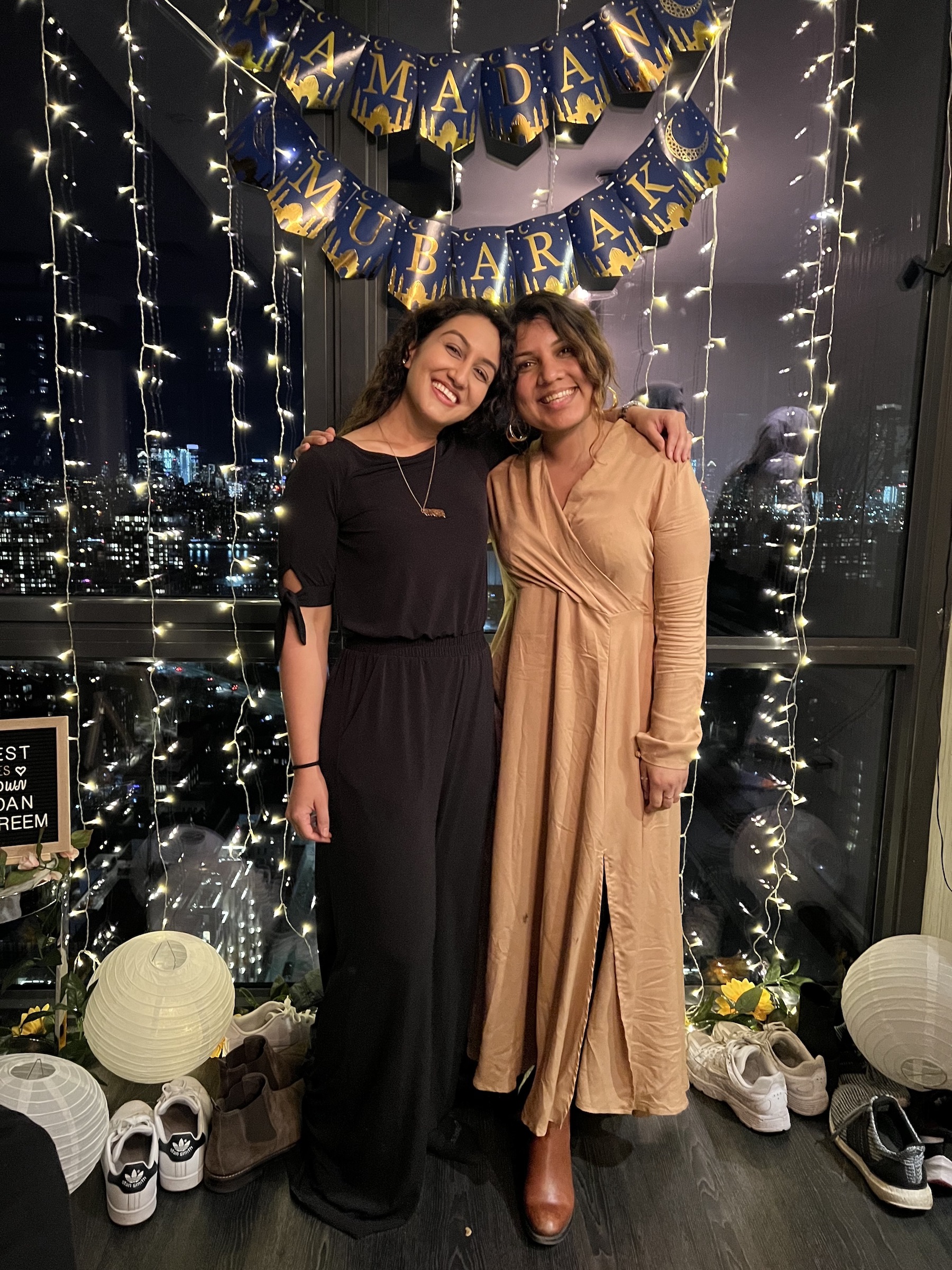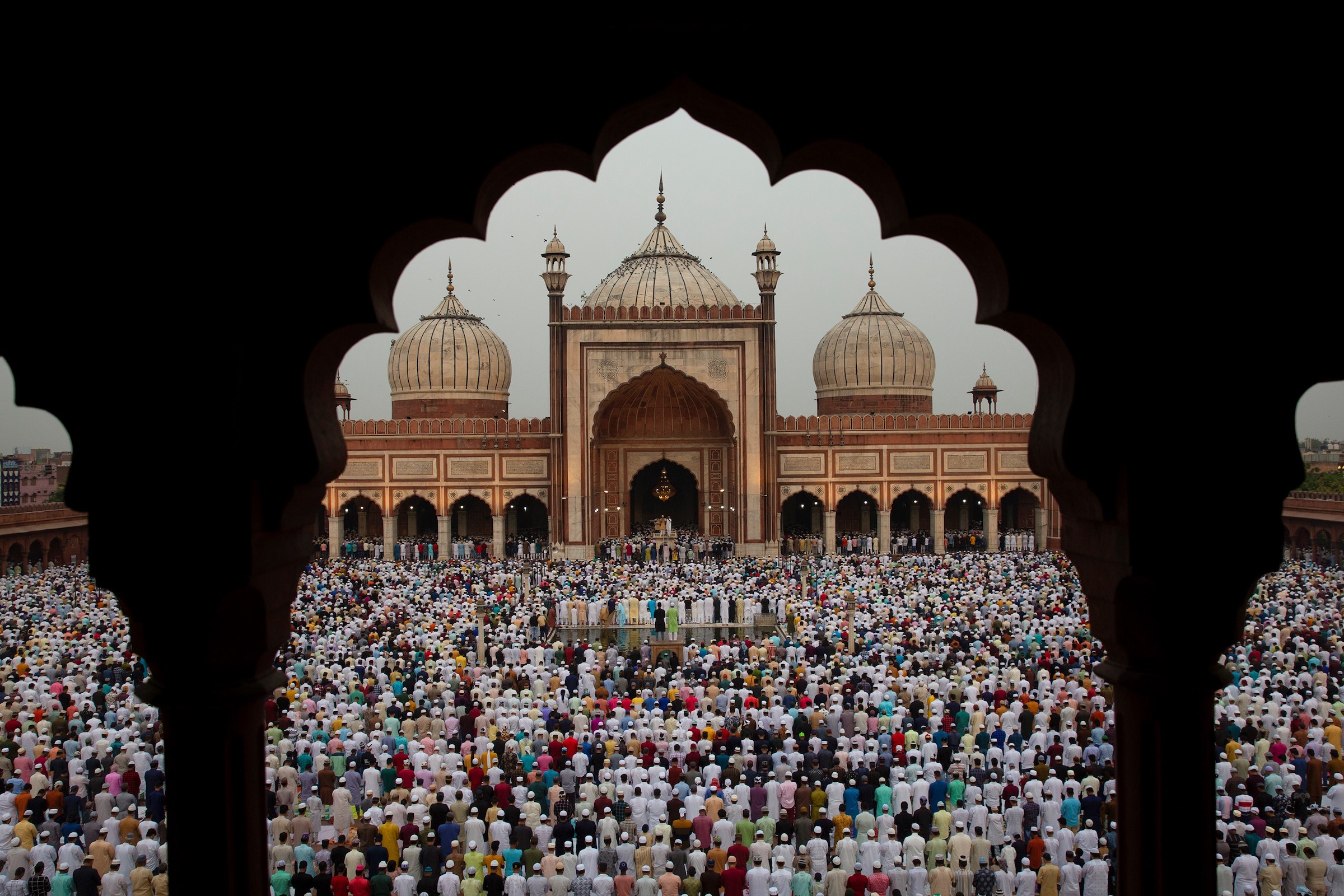Aniqa Mian, a 29-year-old Muslim American who grew up in a religious household in Los Angeles, won’t be fasting this Ramadan. She has conflicted feelings about the holy month for the world’s 1.8 billion Muslims.
“Ramadan is one of the ways that my eating disorder was triggered and that feels like such a shameful thing to say as a Muslim,” says Mian, a Pakistani American, who struggled with anorexia for eight years and has been in recovery for about a year. “It feels like I am making fasting seem like a bad thing; because I fasted, now I have an eating disorder.” The reality is more complicated.
Ramadan’s typical fasting requirements are that Muslims abstain from food and drink—as well as sexual activity—from dawn to sunset. While the restrictions around diet can help many Muslims feel spiritually connected, they can also be addictive and harmful for those with a habit or history of eating disorders.
Mian, who lives in New York, is just one example of why a Muslim may not fast. Some choose not to because they aren’t very religious. Others may be pregnant or breastfeeding. They may be on their period. They may have diabetes or a heart condition. They may need to take medication for a physical or mental health condition throughout the day; Muslim Americans are twice as likely to have attempted suicide compared with other religious groups, according to a 2021 study published in JAMA Psychiatry.
Islam allows exemptions from fasting related to health and travel. Exceptions for travel are fairly expansive; even a domestic flight lasting a few hours counts. For temporary sickness or travel, individuals can make up the fasting days missed in the rest of the year. For more permanent illnesses, Muslims are exempt—particularly if a medical professional has said it would be detrimental to their health. But not fasting—even if an exemption exists—can be a decision wracked with guilt for observant Muslims, especially if they’re dealing with a chronic condition or a mental health issue. “You feel this guilt and shame that I’m not partaking in this thing that millions of people around the world are doing,” says Mian.

A period of denial
For many struggling with fasting, there’s a period of denial or trying to make it work.
That includes Aleena Khan, a 24-year-old Indian-Pakistani-American living in Washington, D.C. She was diagnosed with a digestive health issue, similar to chronic acid reflux, and doctors advised her to eat smaller meals more frequently instead of infrequent large meals as well as sleep on a regular schedule. “That’s really the opposite of fasting,” Khan says. Initially, Khan tried to fast for half a day or every other day. But in 2020, her condition got “really bad.” She would throw up what she ate for the pre-dawn meal.
The thought of not fasting weighed heavily on Khan. In high school, Khan played soccer and even fasted on the field. The act of refraining from food and water helped ground her, she says. Without that aspect, “It’s harder—you feel less plugged into the spiritual aspect because you’re just kind of there,” she says. There’s also “judgment or shame that you’re not as good of a Muslim,” she adds.
Dr. Sarah Syed, a psychologist at the Khalil Center, which incorporates traditional Islamic spirituality into therapeutic practices, often finds herself providing religious reassurance to heavy, theological questions: “How do I know that I qualify for this mercy? When Allah said, ‘this is forgiven, how do I know that’s intended for me?’”she says her patients ask her.
Syed, who sees about 25-30 clients a week in the Chicago area, tries to help them understand that they are exempt from fasting requirements as an act of mercy. “That’s something that is really hard for a lot of people to wrap their head around.” If fasting will worsen a Muslim’s mental illness, then it’s better for you not to fast to avoid doing harm to yourself, according to the Islamic scholars that the Khalil Center consults. “We’re commanded not to harm ourselves,” Syed says.
‘They can think outside the box a little bit’
That’s not to say all Muslims with any form of mental or physical health issue cannot fast. Experts agree that this should be decided with the help of a physician on a case-by-case basis.
“I’m not saying that every Muslim with anxiety and depression can’t fast, but it’s a spectrum,” says Dr. Rania Awaad, a clinical associate professor of psychiatry at Stanford University’s School of Medicine and director of the Muslim Mental Health and Islamic Psychology Lab, who is also trained as an Islamic scholar. “On the heavier end of the spectrum, if a person isn’t even getting out of bed or brushing their teeth, we can’t expect them to take on fasting.”
But Awaad worries that some doctors may shut down the prospect of fasting for patients without taking the time to understand the details of their case. “Sometimes doctors fear the unknown. They don’t know what they don’t know. And so they’re really worried about anything that they haven’t studied—and they haven’t studied fasting,” Awaad says. While it’s recommended that pregnant women don’t fast, for example, those in the earliest stages who are getting enough fluid and nutrition could potentially do it, Awaad argues. For Muslim patients with other needs, doctors could consider dosing medications at a time during which their patient can eat if it does not have adverse effects. “They can think outside the box a little bit,” Awaad says. “For some people, it’s still doable and they don’t have to feel like they’re kind of cut off from this community or have people judging them.”

Loaded questions
Muslims who don’t fast are often on the receiving end of invasive questions from both Muslims and non-Muslims about why they aren’t fasting. It can be a loaded topic—prompting them to disclose sensitive details about their health or level of practice. “I don’t want some random aunty I haven’t met in 10 years to know my health history,” says Khan.
For Muneeb Baig, a 24-year-old Pakistani American in Yonkers, New York, who doesn’t fast because he is diabetic, these questions can be “weird or awkward.” Baig, who was diagnosed with Type 1 diabetes at the age of nine, tried to fast when he was 13 but had to break it halfway through. “Either my blood sugar was too high from not eating or it was too low because it can fluctuate either way,” Baig says.
Sheba Khan, a 40-year-old Pakistani American in Long Island, New York, who doesn’t fast because she is in remission after facing Stage III lung cancer, says she doesn’t feel left out during Ramadan but she does get defensive if she can sense someone else’s judgment. For her, fasting had been “standard procedure” while growing up. “Last year, my mom asked me to try to fast; I fasted one day and I was in bed for three days,” Khan says. “I might try to do one fast again but last year was traumatic; God has given me a reason why I don’t have to do it.”
Muslims have five pillars to their faith, including fasting during Ramadan: Muslims must profess their faith (shahadah), pray five times a day (salat), pay charity (zakat), fast during Ramadan (sawm), and go on a religious pilgrimage to the holy city of Mecca (hajj). Many of those who can’t fast look for alternative ways to connect with their spirituality. Sheba Khan started going into her children’s school to teach their classmates about Ramadan and started a small business for Ramadan and Eid decorations.
This year, Mian consulted her psychiatrist when choosing whether to fast. In addition to previously having struggled with anorexia, Mian is currently on medication for major depressive disorder. Her psychiatrist raised concerns about how fasting could trigger her eating disorder and her medication wouldn’t work if she were starving herself, and Mian decided not to fast.
Instead, Mian will go to night prayers every day. She wakes up early for fajr prayer and instead of eating the pre-dawn meal, she reads the Quran. She doesn’t eat dinner until iftar time, when others break their fast. She opens her meal with a date. “There’s ways that I can make it feel like it’s still Ramadan for myself,” she says.
But sometimes she still feels a sense of shame. “I should not have been fasting for years but I did because I was already starving myself. Every Ramadan, I was like—this is so easy. I don’t even have to try hard,” Mian says. “Fasting can mask an eating disorder in that no one questions why you’re not eating… It’s an easy way to keep it up.”
A part of Mian wonders why she doesn’t just try and eat a moderate amount of food and drink when she opens her fast. Then, she reminds herself that she is still recovering. “If I go back to even a slight bit of restricting, I will get back into the habit really quickly,” she says. “There’s a reason I’m not fasting and it’s a constant reminder: you’re taking care of yourself and that is good enough.”
More Must-Reads from TIME
- Cybersecurity Experts Are Sounding the Alarm on DOGE
- Meet the 2025 Women of the Year
- The Harsh Truth About Disability Inclusion
- Why Do More Young Adults Have Cancer?
- Colman Domingo Leads With Radical Love
- How to Get Better at Doing Things Alone
- Michelle Zauner Stares Down the Darkness
Write to Sanya Mansoor at sanya.mansoor@time.com